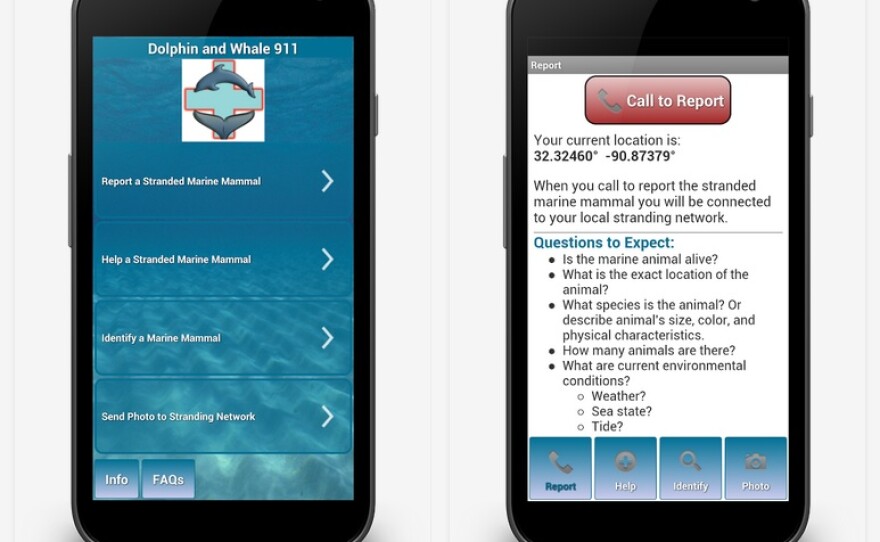There’s a new smartphone app to help Floridians report sea life in need of help in the Southeastern U.S. National Oceanographic and Atmospheric Administration officials say it’s more important than ever given an expected increase in the number of stranded animals—particularly dolphins.
For the past several years, marine mammal strandings in Florida have averaged about 200 a year, excluding manatees. A stranding is when a whale, for example, gets beached or stuck in shallow water. This year, it’s been especially bad says NOAA’s Erin Fougeres.
“Early Summer, in the Indian River Lagoon, an unusually high number of bottlenose dolphins have been stranding. And, there’s also from New York all the way down through Northeast Florida right now, Atlantic bottlenose dolphins are stranding and that’s being attributed to an outbreak of the morbillivirus, a virus impacting the population. So, Florida may get a certain number of strandings every year, but this year, they’re especially high because of these two unusual mortality events,” said Fougeres, the Southeast Marine Mammal Stranding Program Administrator for NOAA Fisheries.
So, she says a new app called "Dolphin & Whale 911" will help residents report dead and injured marine mammals, whether it be to rescue the mammals or assess the reason for a die-off.
“Its most important application is it allows you to tap a button that says ‘call to report’ and it uses the user’s GPS coordinates as identified by its phone to connect them with the most appropriate local stranding response and organization. For example in Florida, it would connect with the Florida Fish and Wildlife Conservation Commission,” she added.
The app can also identify the particular animal and e-mail a photo to the local stranding network that can help in locating and assessing the mammal. Those without smartphone capabilities can call the marine mammal stranding hotline at 1-877-WHALE-HELP (1-877-942-5343).
NOAA has another new app called "See & ID Dolphins & Whales," which allows the user to find out more about the marine mammals they see as well as learn how to protect them.
For more news updates, follow Sascha Cordner on twitter @SaschaCordner.




